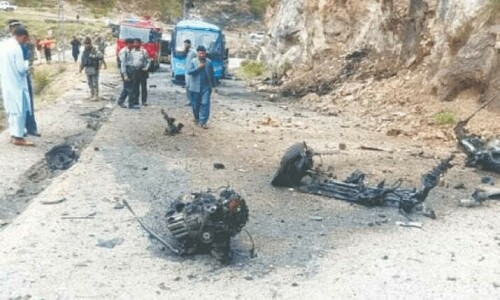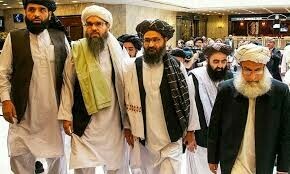THE several-hundred-kilometre road from Quetta to the Iranian border at Taftan has become a virtual death trap for Shia pilgrims taking the land route to holy sites in Iran and Iraq. The latest outrage was the massacre of over 20 pilgrims returning from Iran in Taftan on Sunday night. Most of the victims hailed from Kohat. As reported, a number of suicide bombers and gunmen stormed two hotels where the 300 or so pilgrims were breaking journey. A group called Jaishul Islam has claimed responsibility for the attack; the outfit is considered to be an offshoot of Lashkar-i-Jhangvi, which has orchestrated numerous sectarian attacks across Pakistan, particularly in Balochistan. The attack marks an expansion in the geographical reach of the militants, as earlier, pilgrim convoys and buses were mostly attacked in or near Quetta or Mastung. Sunday’s incident also shows how brazen the militants are, striking so close to the Iranian border. However, what the attack most clearly illustrates is the state’s complete failure to eliminate sectarian killers and protect vulnerable citizens in Balochistan. Further, the facilities in Taftan are said to be grossly insufficient to handle such a tragedy, and fire brigade and first-aid facilities in the border town are virtually non-existent.
What can we suggest that we have not suggested before to prevent such atrocities from recurring? We can ask for closure of the land route and the provision of alternative sea and air connections to Iran and Iraq for pilgrims until the road to Taftan is safe for travel. We can suggest that convoys have beefed-up security escorts for the length of the journey till the border. We can suggest all these things. But perhaps one suggestion may address all the concerns if implemented: the state must uproot the infrastructure of sectarian terrorism in Balochistan in order to prevent such atrocities from happening again and again. However, this is a suggestion conscientious observers have been making for a long time now, yet all governments have failed to pay heed to it.
Published in Dawn, June 10th, 2014










































